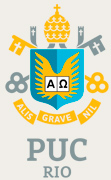Call for Papers - Specific Themes
THE CLIMATE-DEFENSE NEXUS AS AN EMERGING BATTLEGROUND
Contexto Internacional Special Issue Guest Editors:
Thauan Santos (Brazilian Naval War College, Brazil) - thauan@marinha.mil.br
Beatriz Mattos (Cipó Platform, Brazil) - beatrizrbm@gmail.com
Rubens de Siqueira Duarte (Brazilian Army Command and General Staff College, Brazil) - rubens@rubensduarte.education
Mila Campbell (Sovereignty and Climate Center, Brazil) mila.campbell@soberaniaeclima.org.br
Traditionally, the defense sector has largely focused on strategic issues, geopolitical rivalries, and immediate threats such as terrorism or conventional warfare, often marginalizing the climate change agenda. This oversight stems from the perception of climate issues as environmental or socioeconomic challenges rather than direct threats to national security. However, as the impacts of climate change intensify (manifesting as rising sea levels, extreme weather events, and disruptions to critical resources and infrastructures), military and security institutions are increasingly recognizing its implications. According to the “Global Trends Report”, by the U.S. National Intelligence Council, climate-driven phenomena, including mass migration and resource scarcity, are projected to exacerbate conflict and instability, demanding attention from both academic and operational spheres in defense.
In practice, certain nations have taken significant steps to integrate climate considerations into their defense frameworks. In 2008, the High Representative and Commission presented a report to the European Council describing climate change as a "threat multiplier". Following the European Union (EU), the United States (US) has also incorporated this perspective into the Department of Defense (DoD)’s strategies and operational planning. Reports such as the DoD’s Climate Risk Analysis (2021) emphasize the vulnerabilities of military installations to flooding, hurricanes, and extreme heat. Similarly, countries like the United Kingdom (UK), Chile, and Australia have advanced defense policies to address climate resilience.
The nexus between defense, security, and climate policies extends beyond reactive measures to include proactive mitigation and adaptation strategies. Forces worldwide are exploring the use of renewable energy in operations, reducing reliance on fossil fuels to enhance sustainability and energy security. Simultaneously, military institutions contribute to climate adaptation by supporting disaster response, infrastructure fortification, and community resilience. As the United Nations Security Council continues to debate the securitization of climate risks, this emerging intersection underscores the need for interdisciplinary collaboration. Academic research is key in framing climate security as a central theme, informing policies that align defense imperatives with global efforts to mitigate climate change impacts.
Therefore, this special issue is seeking contributors for a Special Issue drawing together and expanding on five core themes:
(1) Conceptual and Historical Foundations of the Climate-Defense Nexus
What is the origin and evolution of environmental/climate security as a concept?
How has climate change emerged as a "threat multiplier" or as a “risk multiplier” in global security discourse and in national defense policies?
What international legal and policy frameworks underpin the intersection of climate and defense, such as the Paris Agreement, the 2030 Agenda, and COPs?
(2) Impacts of Climate Change on Defense and National Security
How do climate-induced events, such as sea-level rise, natural disasters, and extreme weather, affect military infrastructure and readiness?
In what ways do climate change and resource scarcity drive migration and regional conflicts?
What are the emerging security risks and challenges to the defense sector associated with competition over climate-sensitive resources, such as water and minerals?
In what ways do climate change will demand revisiting military doctrine and strategies of employment?
(3) Mitigation and Adaptation Strategies in the Defense Sector
How can armed forces reduce their carbon footprint and transition to renewable energy sources without compromising their operational capabilities?
What strategies ensure the integration of climate resilience into military planning and operations?
How do international defense collaborations and regional cooperation contribute to disaster response and climate adaptation?
(4) Political and Institutional Challenges in the Climate-Defense Interface
How can global governance frameworks effectively align defense priorities with climate goals?
What are the key challenges in allocating resources for defense versus climate mitigation efforts?
What ethical considerations arise in the militarization of climate-related issues?
(5) Geopolitics of Climate Change
How is climate cooperation affected by power politics and how climate change impact the international geometry of power and global disputes?
What are the interests behind climate change securitization in defense and security fora such as the CMDA and the UNSC?
Taking into consideration historical power disparities, what are the challenges of the South to reinforce their national interests in the climate agenda?
What are the consequences of the securitization of climate change for international politics?
How and whose norms matter in global governance and what is the role of transnational networks in the local-international nexus?
Considering the scarcity of literature on this subject, along with solid and long-standing international experiences on this agenda, this special issue will accept both theoretical and applied contributions, encouraging case studies and analyses that bring data and practical cases to this climate-defense nexus. It also encourages proposals that address the particularities of the Global South and stimulates interdisciplinary approaches that consider gender diversity and seniority. The call will be publicized through various social networks (website, Facebook, Instagram, X, and LinkedIn) and related academic/professional associations in Brazil (ABRI, ABED, ABCP, for example) and abroad (ISA).
Authors should submit their full articles by March 30th, 2026, to the Contexto Internacional online system (https://mc04.manuscriptcentral.com/cint-scielo). The special issue is expected to be published in 2027. See Authors’ Guidelines for further instructions: https://www.scielo.br/revistas/cint/iinstruc.htm.
Please contact the guest editors if you have any questions.
 Instituto de Relações Internacionais
Instituto de Relações InternacionaisRua Marquês de São Vicente, 225 - Vila dos Diretórios, Casa 20, Gávea - Rio de Janeiro - RJ, Brasil
Tel/Fax: +55 21 3527-1557 3527-1558 3527-1560

